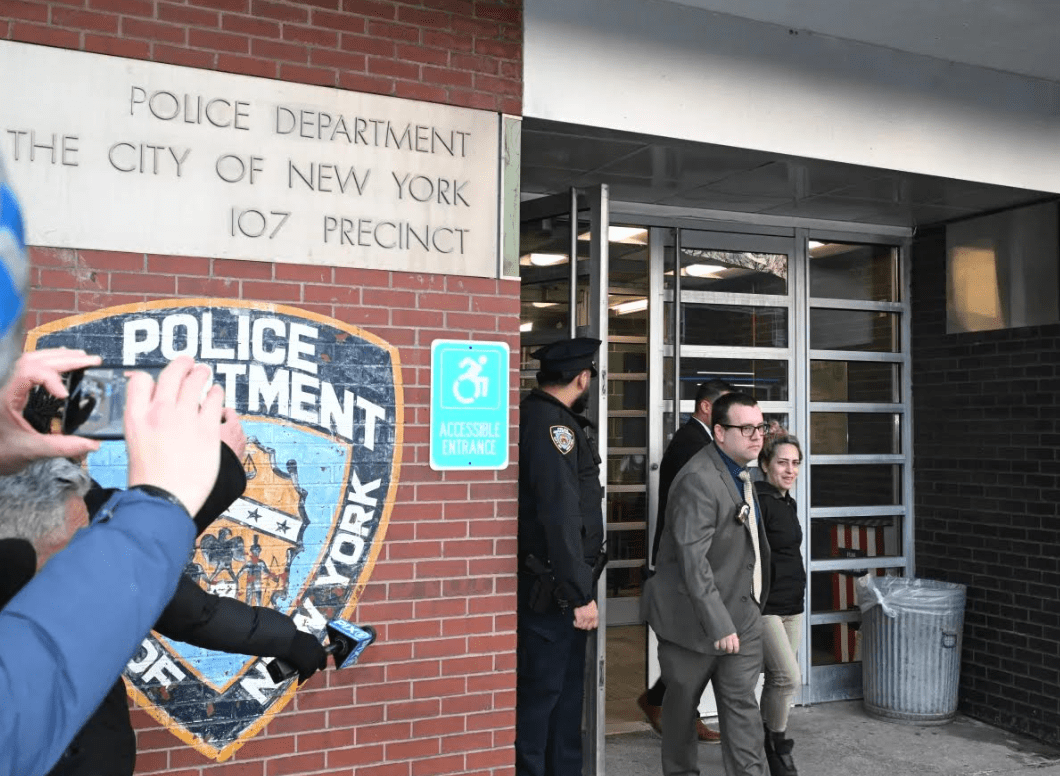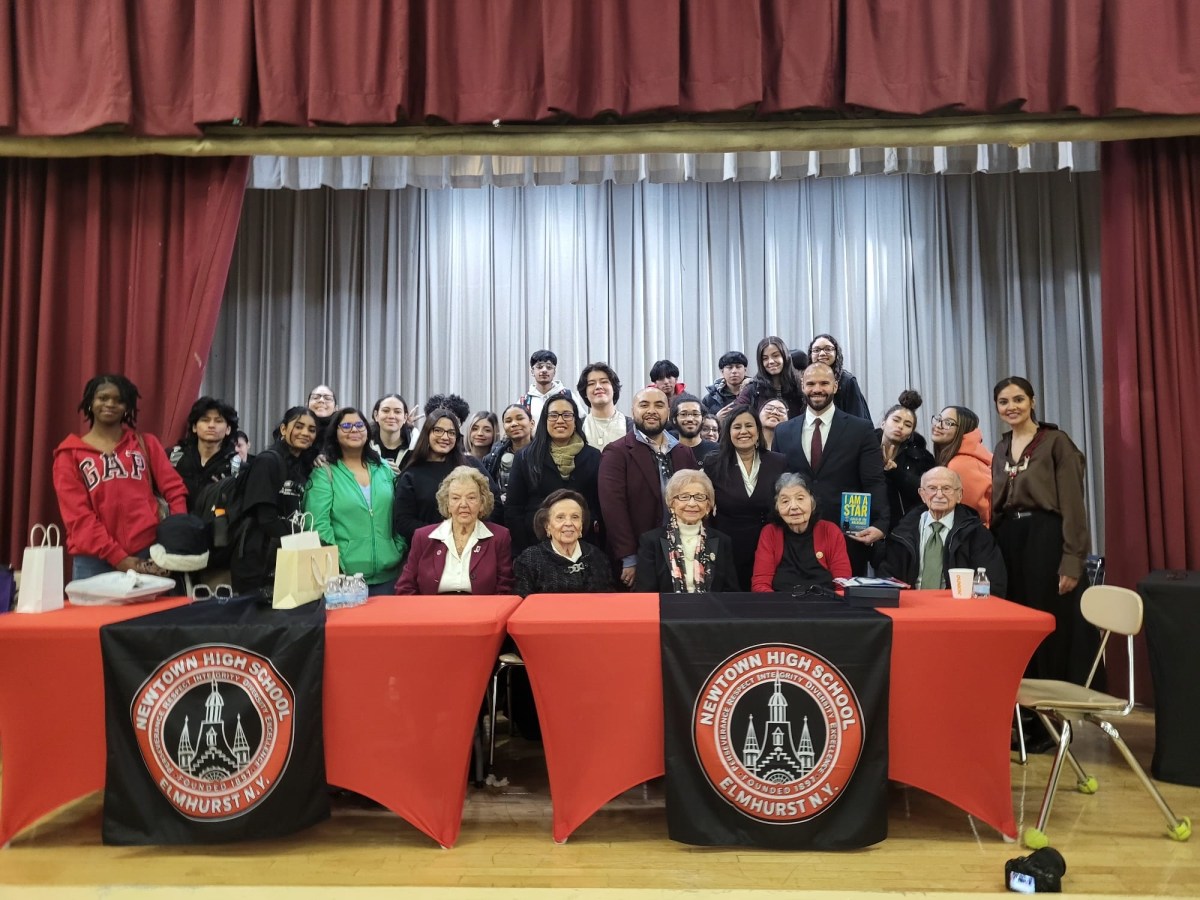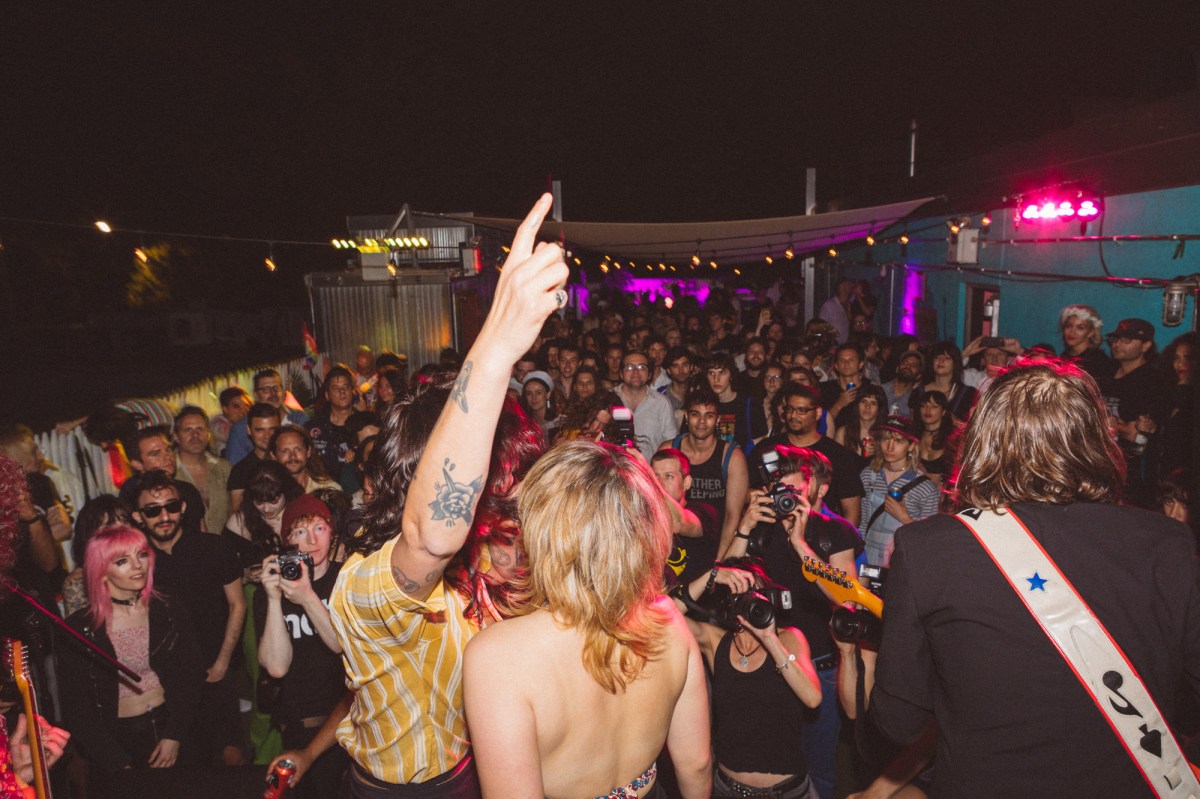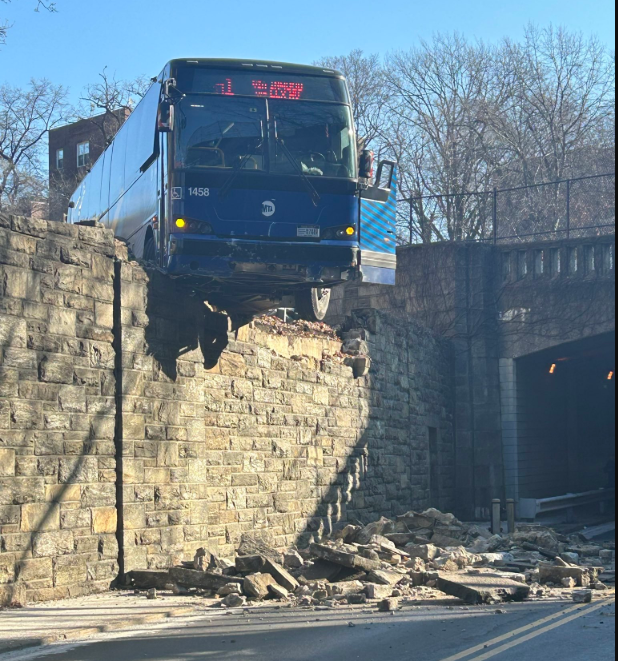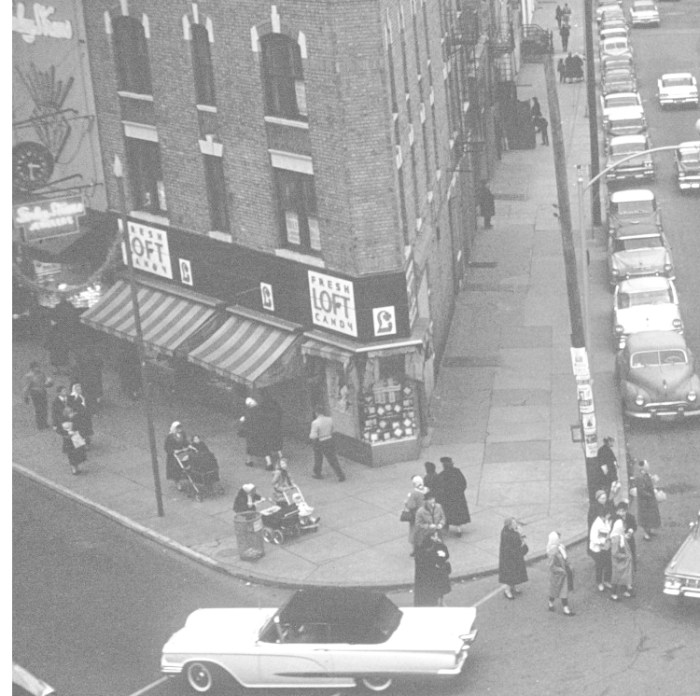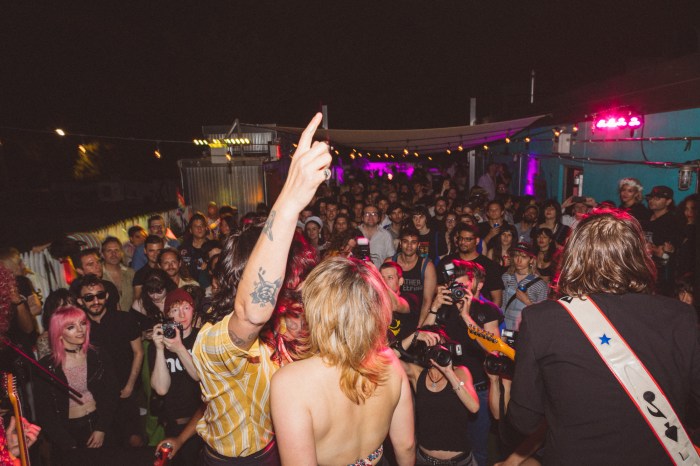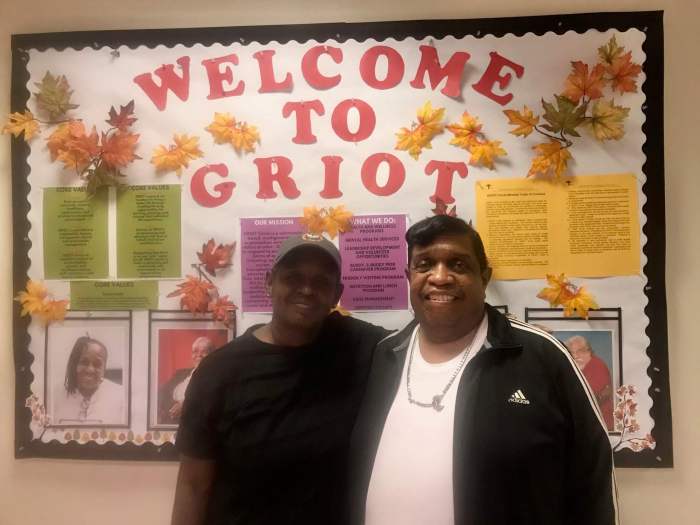BY PAUL SCHINDLER
With roughly 75 activists and a larger lunchtime crowd looking on, a dozen demonstrators protesting what they say is the federal government’s “neglect” in stepping in to end a crisis in the delivery of AIDS services in Puerto Rico laid down across lower Broadway, tying up traffic for nearly half an hour on Nov. 14.
The protesters, led by Housing Works, an AIDS services group, joined hands and blocked traffic on Broadway, which runs one-way southbound, at the corner of Worth St. The protesters and their supporters had traveled, with posters and American and Puerto Rican flags, one block west from a rally they had held in Foley Square to a location in the shadow 26 Federal Plaza. Despite the intense security that surrounds this part of the city, with its concentration of federal buildings and courthouses, it took police more than 10 minutes to arrive on the scene.
Within five minutes of the first squad car arriving, however, more than three dozen police officers had turned out, with five or six squad cars, a van, a K-9 unit and two mounted officers. After numerous warnings to the 12 protesters lying in the street, police moved in, handcuffed them, and took them to the Fifth Precinct in Chinatown. The arrestees generally cooperated with the police; only one protester was seen being dragged involuntarily into the waiting vehicles.
According to Housing Works, all 12 were charged with misdemeanor counts of disorderly conduct and obstructing vehicular traffic, and given desk appearance tickets, which allowed them to leave without posting bail with an order to appear in court January 29.
Tamara Oyola-Santiago, a Housing Works employee who was among those arrested, said the 12 were processed “surprisingly quickly,” in less than two hours, and treated well by police, who she said were “incredibly supportive,” some telling them they had family members living with H.I.V.
Advocates familiar with the delivery of AIDS treatment and services in Puerto Rico described a dysfunctional system plagued by government mismanagement and corruption, inadequate U.S. government oversight of local disbursements of funds, and financial strains compounded by an unusually low rate of federal contributions to the Medicaid program compared to the mainland.
Puerto Rico is one of the centers of the American H.I.V. epidemic. In 2005, the island was ranked tenth among all states in new AIDS cases — 1,033, nearly the pace in New York State, which leads the nation, on a relative basis — and tenth in cumulative cases — 29,092, again nearly keeping pace with New York from a per capita perspective.
Nearly 19,000 people in Puerto Rico have died of H.I.V.-related disease and the island’s AIDS death rate is nearly three times the national average.
The planning council responsible for establishing federal AIDS spending priorities for San Juan raised concerns last year about the management of AIDS dollars. In December, the FBI raided four public health department offices in the city and seized hundreds of boxes of evidence. Indictments are widely expected, said James Albino, a member of the planning council.
A key demand of the demonstrators this week was that U.S. Health and Human Services Secretary Michael Leavitt step in to seize control of the disbursement of federal dollars now overseen by the San Juan and the Puerto Rico governments. Albino said those two governments control about 75 percent of all US Ryan White AIDS Care Act dollars going to the island, a total of nearly $55 million.
Due to a federal law dating back decades, the commonwealth has a severe restriction on the rate of federal reimbursement for its Medicaid program, compared to other states; consequently a high percentage of Puerto Ricans living with H.I.V. must resort to the strained AIDS Drug Assistance Program, which is designed to only help those in need who are not covered by Medicaid.
The Puerto Rican government insists it has cleared the waiting list of those ADAP cannot yet serve, but activists on the ground insist that many go unserved despite official claims. Albino said that the federal Office of Minority Health found that the commonwealth’s government lacks the infrastructure to even measure the percentage of those in need that it is able to serve.














